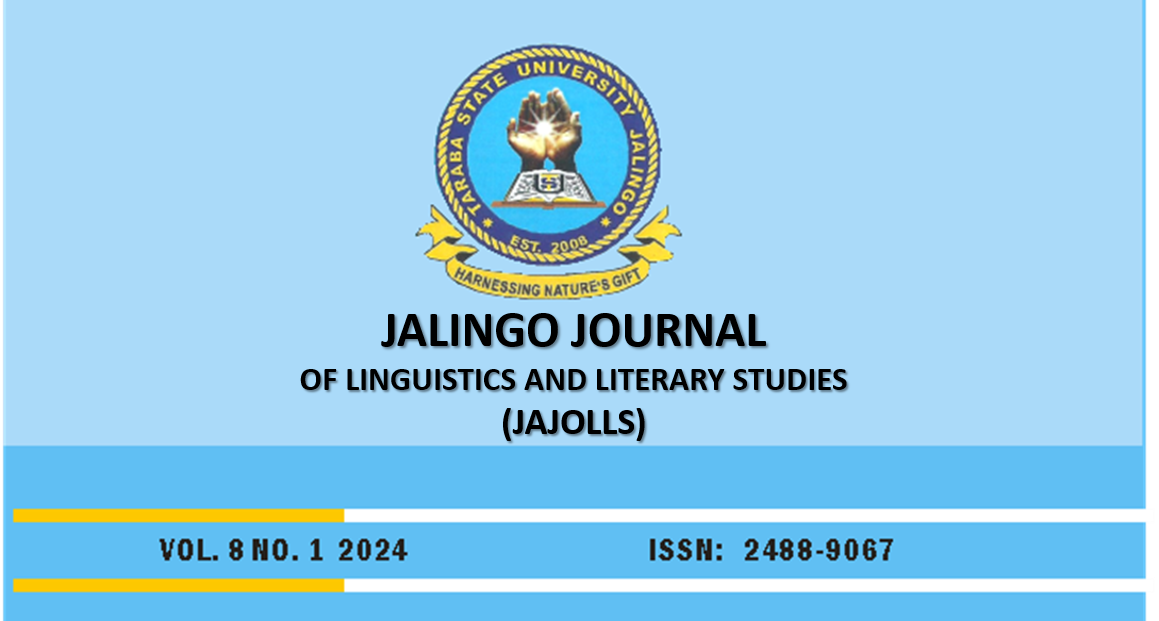Common ground in Ahmed Yerima’s Orisa Ibeji and Owiwi
Keywords:
Pragmatics, Common Ground, Grounding in Conversation, Pragmatic, FeaturesAbstract
Language is an important factor in communication which helps in decoding meaning and enhancing communicative interaction in the society. Pragmatics deals with the use of language as intended by the speaker. This is determined by context and what the hearer infers from what is being said. Listeners make inferences from what is said in order to arrive at the speakers’ intended meaning and this can be achieved through certain prior shared experiences by the interlocutors in the discourse. These shared experiences or information are referred to as Common Ground (CG). The purpose of this study is to investigate how Yerima employs Common Ground features in the dissemination and interpretation of the speakers’ intended message in Orisa Ibeji and Owiwi. The data were selected purposively from the texts and analysed using Bach and Harnish’s theory, Clark’s classification of Common Ground and Common
Ground features such as implicature, presupposition, mutual contextual beliefs and intention. The findings of the study showed that these features help to establish Common Ground among the participants and speakers’ effective use of language which is ultimately dependent on it due to the shared knowledge among interlocutors in texts. The study therefore concluded that CG which is an indispensable feature in meaning explication process acts as lubricants in any communicative process as it helps in the conceptualisation and dissemination of the intended messages in literary texts.

